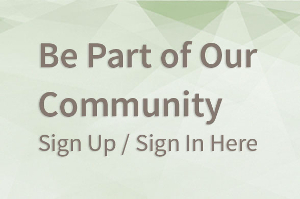BK Blog Post
The Proposal to End All Proposals
 Posted by
Anna Leinberger,
Editorial Manager, Acqusitions,
Berrett-Koehler Publishers Inc.
Posted by
Anna Leinberger,
Editorial Manager, Acqusitions,
Berrett-Koehler Publishers Inc.
Anna is a writer and editor for Berrett-Koehler in Oakland, CA. More on killer book proposals and writing can be found on her BK Blog.
A few months ago we received an absolutely phenomenal proposal for a very exciting book. The whole office was excited about it weeks before we were able to make any official decisions about it. The author is smart, motivated, doing fabulous work in journalism, writes for major media outlets, and has one of the most compelling messages we have seen in a long time. Basically, she is a slam dunk author. This was clear for many reasons, but we could tell from the moment we picked up the proposal that this was going to be the case. Why?
Take me away
Quite simply, it was this: the editor who first received the proposal opened it, started reading, and promptly forgot he was reading a book proposal. I don’t mean he was immediately intrigued by some piece of information that the writer thought would be shocking or provocative. I mean he was pulled into flow, and read through the proposal with enjoyment and ease. The writing was witty, entertaining, and authentic. Instead of reading like an application, it immediately created a connection with the reader.
Ax the background information
This might come as harsh criticism to some, but in the service of radical honesty, the last thing I want to read when opening a book proposal is your life story. Yes, even if that life story directly relates to why you chose to write the book. Humans tend to write their own origin stories. Your book’s genesis may have come while sitting on a beach, doing international volunteer work, or in a moment of insight that your whole life means has lead to this very moment. While these moments, and everything that lead up to them, might be highly meaningful to you, it likely is not as meaningful to your reader. I don't want to hear HOW you got to your conclusion- I am more interested in the conclusion itself. This is not to say that you should not include your own experiences, but the key is to make sure you don’t end up writing a personal manifesto. There is a difference between writing the story all about you, and writing the book that conveys a message that was informed by your experience. The latter is compelling; the former is boring.
Loose the Sales Pitch
This might seem counterintuitive, since your book proposal is a sales pitch of a sort, but it is also a very special kind of sales pitch. The product you are pitching is, by its very nature, substantive. The purpose of a book is to explore an idea deeply. If your sales pitch comes across as flippant, slick, and shallow, we are going to think that your writing is flippant, slick, and shallow.
Make the editor forget you are pitching them, and let your ideas speak for themselves. I should forget I am reading your book proposal, and instead be engrossed with the ideas you are presenting. The proposal should do your book justice, and it should offer your ideas authentically and passionately.
(And in case your were wondering, that magical proposal? You can find the book it turned into here)





